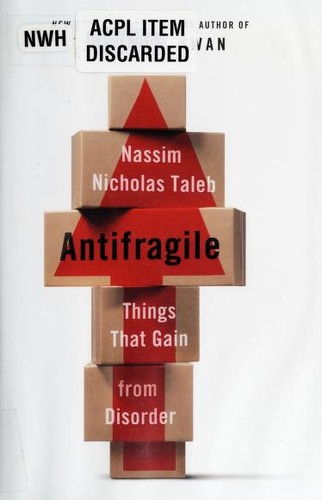Matthew Royal reviewed Antifragile by Nassim Nicholas Taleb
Review of 'Antifragile' on 'Goodreads'
2 stars
Best idea in this book: consider the downside as well as the upside, and systemic perverse incentives can largely be corrected by ensuring decision-makers have skin in the game. For these ideas, read Taleb's other book called "Skin in the Game" and throw this one in the trash.
Every real-world example he gives of something "anti-fragile" could be considered simply "resilient," so I doubt that it exists outside of mythology, like his example of the Hydra, which grows 2 new heads for each decapitation it experiences.
Long discussion on how nonlinear systems are anti-fragile, but it's more descriptive than definitive. He deplores his favorite straw men "Soviet Harvard Academics" for not understanding these systems with curves. (They do; they formulated them.)
On the one hand, academics are all ivory tower fools who don't understand his real-world economics papers like all these business people seem too, and on the other hand, these business people don't get the value of his theoretical foresight like these academic people who invited him to speak seem to.
On the one hand, doctors who are in the trenches know way more than academics who never leave their labs who arrogantly think their ideas will somehow survive working on flesh and blood patients, and on the other hand these foolish old timers used to use leeches, for crying out loud, rather than understand the mechanisms and pathways of disease.
Vitamins aren't real, icing your broken nose is disrespectful to nature, and will you alternative medicine types stop calling me already -- "the approach of this book is ultra-Orthodox, ultra-rigorous, and ultra-scientific; certainly not in favor of alternative medicine."
He simultaneously champions evidence based medicine and decries past ignorant practices. You can't have the first without the other. Practical application of theory on a population and monitoring the results is how we learn what works and what doesn't. If you are attempting the visceral experimentation he advocates, you'll inevitably find something that doesn't work and is in fact harmful 20 years down the line. There literally no other way to "just know" what the best way is, like he implies.
The only takeaway here is this book is a great example of ego justification.

